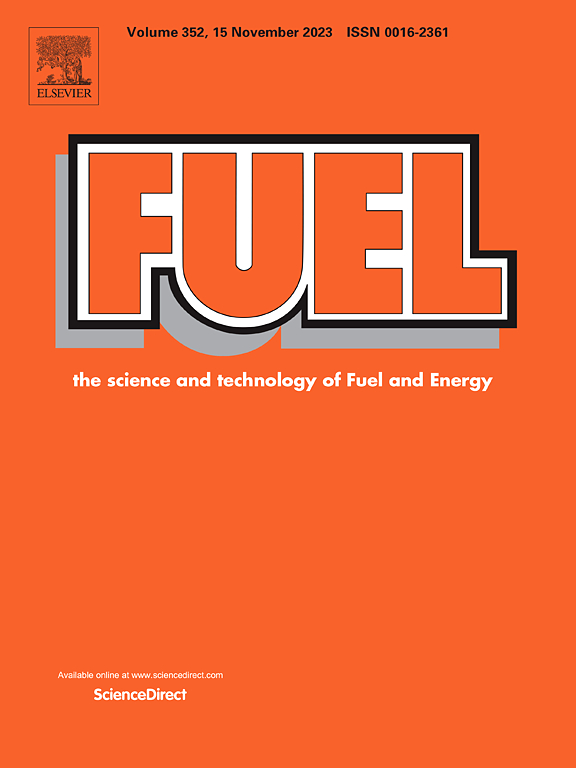Screening the footprints of water in the Fischer Tropsch synthesis over a Ru promoted Co-based catalyst supported by ceria, “a mechanistic insight”
IF 6.7
1区 工程技术
Q2 ENERGY & FUELS
引用次数: 0
Abstract
The pursuit of greener alternatives to combat air pollution has intensified, with Fischer-Tropsch synthesis (FTS) considered a promising solution for converting syngas into clean fuels. However, the presence of water, a by-product of FTS, poses challenges to catalyst performance. This study investigates the impact of water on a Co-based catalyst through a combination of molecular dynamics simulations, FTS performance tests, and experimental characterizations. Experimental data reveal that water vapor significantly enhances CO conversion and reduces methane selectivity, particularly at low pressures. The findings suggest that water, while inhibiting the mass transfer of FTS reactants and products, plays a crucial role in enhancing the adsorption and desorption of key molecules on the catalyst surface. The study proposes a mechanistic approach to elucidate the role of water in FTS, highlighting its influence on intermediate reactions and the water–gas shift reaction (WGSR). Specifically, it investigates the interaction between CO and water, highlighting how water facilitates CO dissociation and enhances CO reactivity. MD simulations are employed to calculate the minimum energy pathway (MEP) for all elementary subsequent steps over the catalyst, shedding light on the energetically favorable pathways in the presence of water. The study identifies distinct reaction routes facilitated by water, including WGSR pathways and H2O-assisted CO dissociation pathways, each contributing to the overall FTS mechanism. Through computational analysis, the study reveals that water plays a crucial role in promoting CO dissociation and chain growth, ultimately impacting the selectivity and productivity of the FTS process. Eventually, a comprehensive kinetic model incorporating water effects accurately predicts experimental results, confirming the significant role of water in altering reaction pathways and selectivity.
求助全文
约1分钟内获得全文
求助全文
来源期刊

Fuel
工程技术-工程:化工
CiteScore
12.80
自引率
20.30%
发文量
3506
审稿时长
64 days
期刊介绍:
The exploration of energy sources remains a critical matter of study. For the past nine decades, fuel has consistently held the forefront in primary research efforts within the field of energy science. This area of investigation encompasses a wide range of subjects, with a particular emphasis on emerging concerns like environmental factors and pollution.
 求助内容:
求助内容: 应助结果提醒方式:
应助结果提醒方式:


